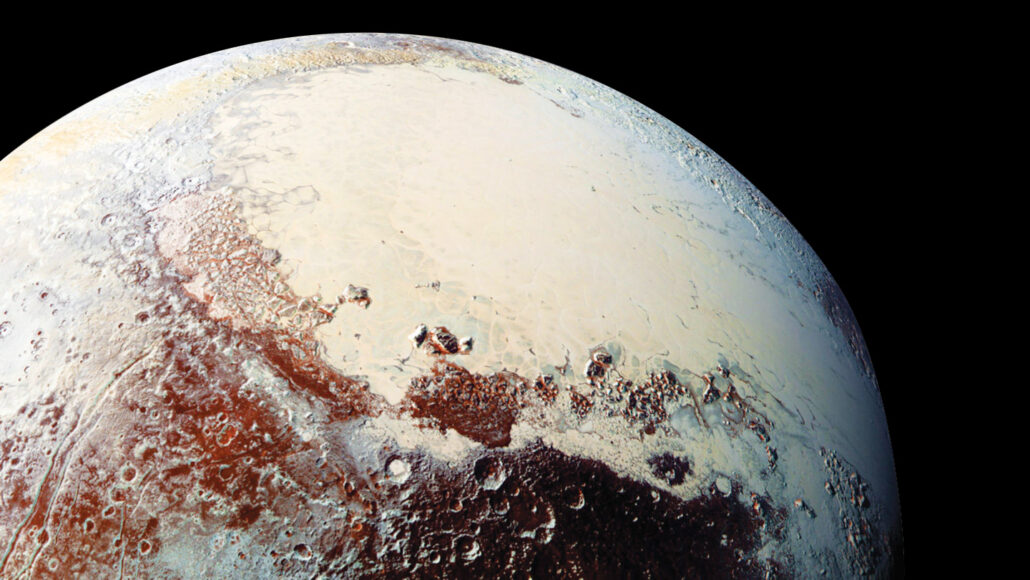Questions for ‘Pluto is no longer a planet — or is it?’

Some scientists argue that Pluto’s fascinating geology should qualify it as a planet.
JHU-APL, NASA, SWRI

Some scientists argue that Pluto’s fascinating geology should qualify it as a planet.
JHU-APL, NASA, SWRI